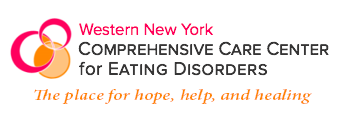Recovery Support
Our mission is to aid in the healing process by providing: Information about the causes, treatment and new findings from research related to eating disorders. Problem-Solving strategies to deal with the difficulties that arise in interacting with an individual with an eating disorder on a daily basis. Support regarding the conflict, denial, frustration, and other challenges that develop during the course of treatment that can lead to isolation. Awareness in the community (youth-servicing agencies, schools, health care services) regarding the early signs of eating disorders and their effective management.
These free, monthly meetings are for families and support people and are facilitated by WNYCCCED leadership and staff who work with providers at the Strong Adolescent Medicine Eating Disorder Program and The Healing Connection. No pre-registration is required.
Every Wednesday, 7:00 PM (ET)
https://urmc.zoom.us/j/2103611690?pwd=VHVmTWYvYVF0aFhMNUdrbFlRbFBJdz09
Password: 1277
Dial: 646 876 9923
Meeting ID: 210 361 1690
For more information: Please call 585-276-6102 or Email: WNYCCCEDParentPeerMentoring@urmc.rochester.edu
The young adult peer mentor acts as a resource and sounding board offering support and information to help individuals navigate recovery. The peer mentor is able to share personal experiences and support others in identifying challenges, strengths, and needs in order to move ahead.
Recovery Support Group run by Nicole Watson takes place on the 4th Tues of each month @ 7-8 pm (ages 18 and over)
https://urmc.zoom.us/j/98664451736
Telephone: 646 876 9923 (US Toll)
Meeting ID: 986 6445 1736
For more information:
“Moving Forward” life coaching group focuses on discovering the authentic parts of yourself and helping you to see a vision for your future as you are transitioning back into school, work, and the community or if you just need support with connection to others in the community. We will assist you in setting goals and developing a roadmap on how to reach them. We will work on your personal values to build confidence and self-awareness. In this group, you will learn how to shift how you see yourself and your opportunities. We will work on elevating the quality of your decision making so that you can create the outcomes you desire. Please join us and you will:
- See yourself from an outsider's point of view to understand what your gifts and strengths truly are.
- Grow in your confidence to be who you are and stand for what you believe in, even when you are scared.
- Get clarity on what you really want and work on a goal that will help you achieve it.
Tuesdays from 6:00 – 7:00 pm
To register or find more information email:
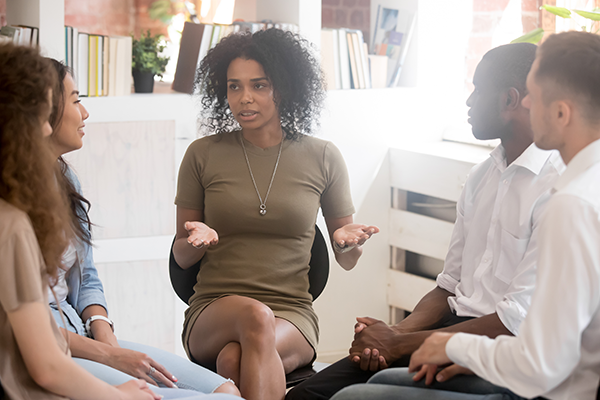
Life coaching helps you clarify your life values and identify and achieve your life goals. Life coaching is especially helpful for individuals in recovery who are experiencing transitions, e.g., beginning or returning to college, starting a new job, returning to work, and/or beginning a new relationship. We offer group-based and individual life coaching.
Life Coaching is taking one step at a time, revealing and discovering your passions and purpose. When in recovery, we have a big space open that was filled with the eating disorder. Now there is room to really discover authentic parts of yourself, identifying likes and dislikes, and helping you to see a vision for your future. Life coaching leads you through personal and identity development and helps you create a blueprint that will lead you to a life you truly want to live. With Vision and a roadmap in front of you, you gain a deeper sense of purpose, and with purpose, there is a greater passion for life.
Testimonials:
This space is important to me. Without having to try hard, I feel like a better person. I am being validated and given permission to feel good about myself. ~Summer
I'm believing that the resources for healing and transformation are going to grow.....and many are going to find freedom and new life. I am so grateful to be apart of this [coaching] process! ~Olivia
To register or find more information email:
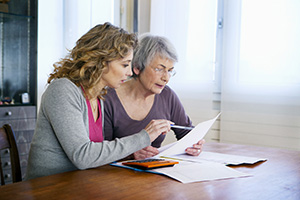
To ensure continuity of the care & the provision of transitional services the Care Manager maintains communication between the patient/family and the treatment team, provides referrals, offers linkage to community resources, can teach life & recovery skills, and acts as one-on-one support as needed. The Care Manager can also coordinate roles between behavioral health and medical care providers and offer eating disorder education to an individual's supports, school, workplace, treatment team members, and loved ones.
The care manager also facilitates a bi-monthly group for siblings of loved ones with eating disorders.
Email our Care Manager: Jennifer Dry DeSanto or WNYCCCEDCareManagement@urmc.rochester.edu
or Call: (585) 276-6102

The young adult peer mentor acts as a resource and sounding board offering support and information to help individuals navigate recovery. The peer mentor is able to share personal experiences and support others in identifying challenges, strengths, and needs in order to move ahead.
Recovery Support Group run by Nicole Watson takes place on the 4th Tues of each month @ 7-8 pm (ages 18 and over)
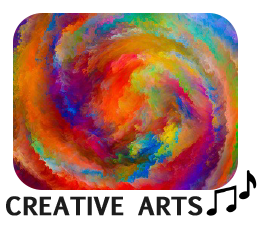
Creative arts therapies often offer a new way for individuals to connect with themselves and others. WNYCCCED offers both Art and Music Therapy. Currently, sessions are offered via Zoom or Jive (videoconferencing). Even if one is already partaking in individual or group therapy sessions, these creative arts therapists are happy to provide supplemental support and work on whichever treatment or support goals best meet each individual's needs.
Email our Music Therapist, Leigh Kirby
Email our Creative Arts Therapist, Jennifer Petix
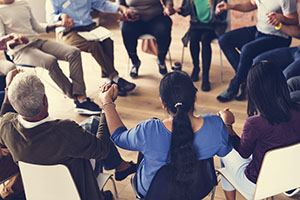
Recovery from an eating disorder can take months, even years. Slips, backslides, and relapse tend to be the rule, rather than the exception. Re-learning normal eating habits and coping skills can take a long period of time and often requires lots of support from professionals, friends, and family. Moving forward is key, however slow it might be.
People struggling with an eating disorder have to address any immediate medical concerns caused by their disorder, work on reducing or eliminating eating disordered behaviors, address co-occurring issues like depression, anxiety, or trauma, and then develop a plan to prevent relapse. Some psychologists call recovery the process of creating a life worth living. Overcoming food and eating concerns during recovery is a central goal, but it’s far from the only task of recovery.
The NEDA website has an extensive information and resource section related to recovery.
